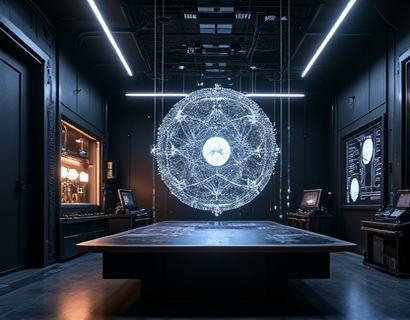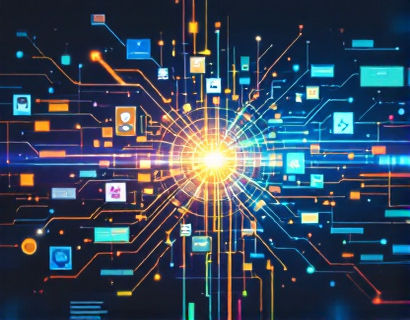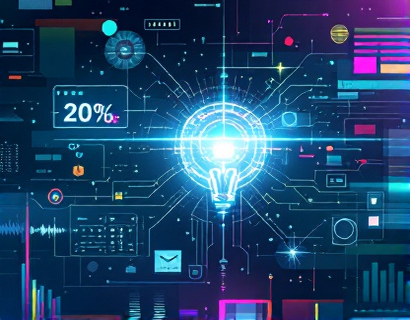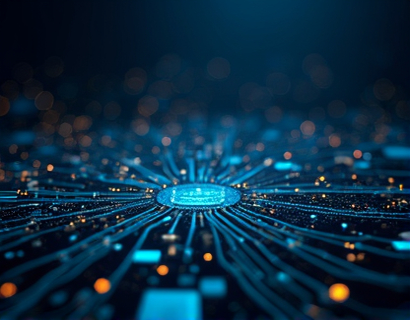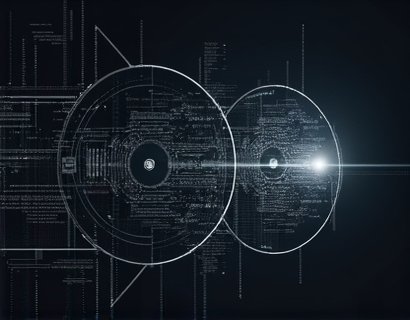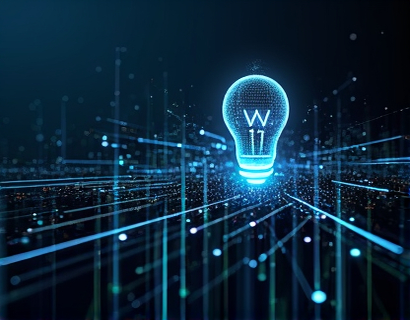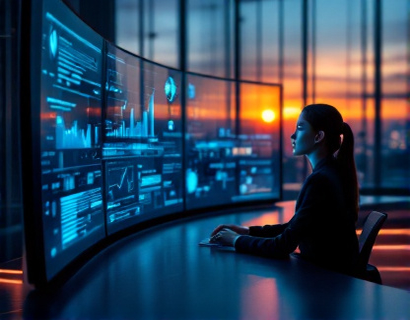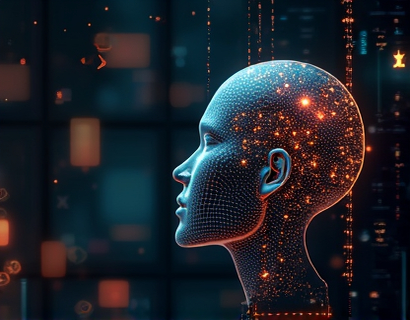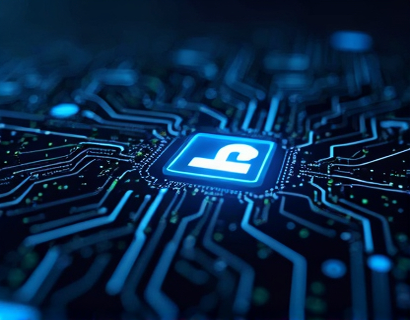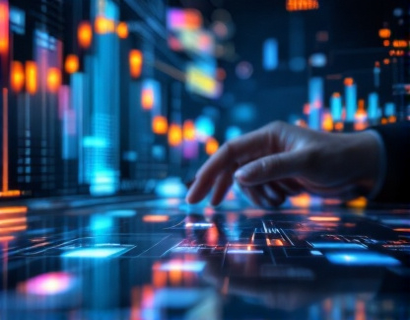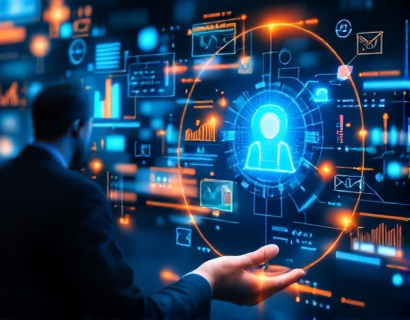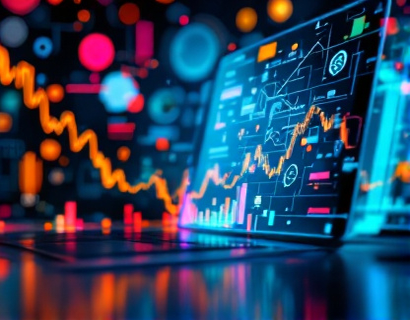Unlocking the Future: The Synergy of Crypto and AI in Digital Engagement
The intersection of cryptocurrency and artificial intelligence (AI) is revolutionizing the digital landscape, offering unprecedented opportunities for user engagement and growth. This convergence is not just a technological advancement but a paradigm shift in how we interact with digital platforms and services. As tech enthusiasts and professionals, understanding the latest innovations and trends in this space is crucial for staying ahead in the rapidly evolving tech sector.
The integration of blockchain technology with AI is creating new dimensions in digital experiences. Blockchain's inherent transparency, security, and decentralization, combined with AI's ability to process vast amounts of data and learn from it, is paving the way for more secure, efficient, and personalized digital interactions. This article delves into the latest developments and trends at this exciting intersection, providing insights that are essential for anyone interested in the future of digital technology.
Enhanced Security through Blockchain and AI
One of the most significant benefits of combining cryptocurrency and AI is the enhancement of security measures. Traditional digital platforms often struggle with security breaches and data leaks, which can erode user trust and hinder growth. By leveraging blockchain's immutable ledger and AI's advanced analytics, new platforms can significantly reduce the risk of security threats.
AI algorithms can monitor network activity in real-time, detecting anomalies and potential threats with high accuracy. When integrated with blockchain, these systems can automatically trigger security protocols to mitigate risks. For instance, AI-driven predictive analytics can identify patterns that indicate a potential attack, allowing blockchain to reinforce its security measures proactively. This synergy ensures that user data remains protected, fostering a safer environment for digital engagement.
Personalized User Experiences
AI's strength lies in its ability to analyze vast datasets and derive meaningful insights, which can be harnessed to create highly personalized user experiences. In the context of cryptocurrency, this means tailoring services and applications to individual user preferences and behaviors. For example, a crypto trading platform powered by AI can analyze a user's trading history and market trends to provide personalized recommendations and alerts.
Blockchain technology complements this by ensuring that user data is stored securely and transparently. Users have control over their data, and the decentralized nature of blockchain means that no single entity has complete control, reducing the risk of data misuse. This combination of personalized insights and secure data management enhances user trust and satisfaction, driving higher engagement and loyalty.
Smart Contracts and Automated Processes
Smart contracts, self-executing contracts with the terms directly written into code, are a game-changer in the crypto and AI ecosystem. When combined with AI, smart contracts can automate complex processes with precision and efficiency. For instance, in decentralized finance (DeFi), AI can optimize the execution of smart contracts based on real-time market data, ensuring that transactions are executed under the most favorable conditions.
AI can also predict potential issues or bottlenecks in smart contract execution, allowing for proactive adjustments. This automation not only speeds up processes but also reduces the potential for human error, making digital interactions smoother and more reliable. The integration of AI with blockchain's smart contract functionality is a powerful tool for creating seamless and efficient digital experiences.
Decentralized AI Platforms
The rise of decentralized AI platforms is another exciting development at the intersection of crypto and AI. These platforms leverage blockchain to create a decentralized infrastructure for AI model training and deployment. By distributing the computational load across a network of nodes, these platforms can process large datasets more efficiently and cost-effectively than centralized systems.
AI models trained on decentralized platforms benefit from a diverse and robust dataset, leading to more accurate and reliable outcomes. Additionally, the decentralized nature ensures that no single entity controls the AI models, promoting fairness and transparency. Users can access these AI services without the need for intermediaries, reducing costs and increasing accessibility. This model is particularly beneficial for developers and businesses looking to integrate AI into their applications without the overhead of maintaining expensive infrastructure.
Tokenization of Digital Assets
Tokenization, the process of converting assets into digital tokens on a blockchain, is another area where crypto and AI converge to enhance digital engagement. By tokenizing assets such as real estate, art, or even intellectual property, platforms can create fractional ownership models that were previously impossible. AI plays a crucial role in this process by valuing assets accurately and identifying potential investors based on their investment preferences and behavior.
For example, an AI-driven platform can analyze market trends and user data to determine the optimal time to tokenize an asset, maximizing its value and appeal to investors. Once tokenized, these assets can be traded on decentralized exchanges, providing liquidity and accessibility to a global audience. The combination of blockchain's transparency and AI's analytical capabilities ensures that the tokenization process is fair, efficient, and highly engaging for all participants.
Enhancing Content Creation and Distribution
The creative industry is also benefiting from the synergy between crypto and AI. Content creators can use AI to generate high-quality content, from writing and design to music and video production. AI algorithms can analyze audience preferences and generate content that resonates with specific demographics, increasing engagement and reach.
Blockchain ensures that content creators are fairly compensated for their work, with smart contracts automating royalty payments based on usage and engagement metrics. This transparent and secure system incentivizes high-quality content creation and distribution, fostering a vibrant and sustainable creative ecosystem. The integration of NFTs (non-fungible tokens) further enhances this by providing unique digital ownership proofs, allowing creators to monetize their work in innovative ways.
Challenges and Considerations
While the potential of combining crypto and AI is immense, there are several challenges and considerations to keep in mind. Regulatory uncertainty remains a significant hurdle, as governments worldwide are still grappling with how to regulate these emerging technologies. Compliance with existing laws and the development of new regulations will be crucial for the sustainable growth of this ecosystem.
Another challenge is the technical complexity involved in integrating blockchain and AI systems. Developers need a deep understanding of both technologies to create robust and efficient solutions. Education and training programs will play a vital role in equipping professionals with the necessary skills to navigate this complex landscape.
Additionally, there are concerns about the environmental impact of blockchain, particularly proof-of-work (PoW) systems, which consume significant amounts of energy. The adoption of more sustainable consensus mechanisms, such as proof-of-stake (PoS), is essential to address these concerns and ensure the long-term viability of blockchain-based solutions.
Future Outlook
The future of crypto and AI is bright, with numerous opportunities for innovation and growth. As technology continues to advance, we can expect even more sophisticated integrations that enhance digital engagement and user experiences. The development of interoperable blockchain networks will facilitate seamless interactions between different platforms, creating a more connected and cohesive ecosystem.
AI's role in optimizing blockchain networks, from improving scalability to enhancing security, will become increasingly important. The rise of edge computing, which brings computation closer to the data source, will further enhance the performance of decentralized AI applications. This convergence will not only drive technological advancements but also open up new markets and use cases, from smart cities to healthcare and beyond.
For tech enthusiasts and professionals, staying informed about these developments is key to harnessing the full potential of this exciting intersection. By embracing the synergy between crypto and AI, we can unlock new possibilities and shape the future of digital engagement.





